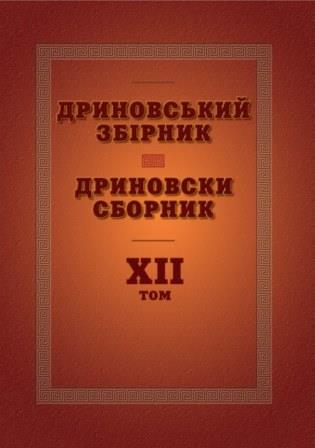І. Mavrodi (1911-1981) and his novel “Katarzhyˮ
Abstract
The article explores I. V. Mavrodi’s life journey and his socialization as a writer and a representative of the Bulgarian diaspora in Ukraine. He was born in a poor rural family, managed to get the education of the highest level and become a member of the Writers’ society of Ukraine. There are poetry, prose pieces, stories and a novel written by him.The writer’s creativity and destiny was a typical life path example of the person who represented the generation that faithfully served the lofty ideals in times full with the Soviet modernization dramas and tragedies, World War II, great terror, which caused annihilating the intellectual elite by neo-stalinizm. The processes had negatively impacted on historical memory, mass and individual
consciousness of the people who survived. Despite undergoing terrifying ordeals, I. Mavrodi’s experience was enriched. The writer had kept optimism. The beginning of his сreative writings had coincided with the period of the Indigenious Policy, so that the first belles-lettres by him were written and published in Bulgarian. Its subjects and main ideas corresponded to the dictates of that times and glorified the Soviet regime. It couldn’t be otherwise. Collapse of the Indigenous Policy made it impossible to him to write in his mother tongue therefore most of his work were written in Russian. The pinnacle of his writing became the novel of “Katarzhy”, what consisted of two volumes. The novel was about his countrymen and his native village. The novel written in Russian was named after his native village name. The 1-st volume was about how Bulgarian settlers solved the important for the Russian Empire task to develop the southern territories. It covered the period from the end of 18-th century till the civil war (1918-1921).The 2-nd volume described the soviet period 1922-1970’s. All of the characters of the novel could be divided into two groups. Real historical personalities, who have been mentioned or who had participated in some episodes belonged to the first one. They were distinctive as chronology markers. Another group included the characters who had prototypes and represented different social strata. In the 1-st volume, the Bulgarian settlers’ lives have been described historically convincing. In the 2-nd volume the author has idealized the events of Soviet history of 1922-1970’s, as a contemporary and eyewitness. The writer’s heritage is of interest as a kind of historical source on the Soviet society. The author сomes to the conclusion that Mavrodi’s creation asserts not only the class values of the time during which he lived, but also the eternal ethical timeless norms.
Downloads
References
Chоrnomorski novyny, 2013, 25 may. (In Ukrainian)
Gromyak, R. T. et al., 1997. Literaturoznavchyj slovnyk – dovidnyk [Literature dictionary-referencebook]. Kyyiv: Publishing Center Academy. 752 s. (In Ukrainian)
Kiryazov, V. P. 2005. Nedopetaya pesnya katarzhiytsa [The catharjian unfinished song]. Bolgary v Ukraine, Rossii i drugikh stranakh SNG. Odessa, № 3, s. 41–46. (In Ukrainian)
Koval, V. K., Pavlovska, V. P. 1988. Pysmennyky Radyanskoyi Ukrayiny. 1917–1987 [The Writers of the Soviet Ukraine. 1917-1987]. Kyеv: Publishing house Soviet Writer. 719 s. (In Ukrainian)
Lyakin,V. Frontovye stikhi iz neizdannoy knigi [Front poems from an unpublished book]. URL: http://belisrael.info/?tag=ivan-mavrodi (Date of the application 17.10.2018). (In Russian)
Mavrodi, I. V. 2005. Moe zhite-byte [My life]. Bolgary v Ukraine, Rossii i drugikh stranakh SNG. Odessa, № 3, s. 34–41. (In Ukrainian)
Mavrodi, I. V. 1978. Katarzhy [Katarzhy]. Vol. 1. Kyyv: Publishing house Soviet Writer, 1978. 276 s.
Mavrodi, I. V. 1984. Katarzhy [Katarzhy]. Vol. 2. Kyyv: Publishing house Soviet Writer. 310 s.
Pavlenko, V. V. 1995. Ukrayinsko-bolgarski vzayemyny. 1918–1923 [Ukrainian-Bulgarian relations. 1918-1923]. Kyyv: NASU Institute of History of Ukraine. 224 s. (In Ukrainian)
Stanchev, M. G. 2016. Bolgary v Rossiyskoy imperii, SSSR, stranakh Baltii i SNG. Vol. 2. Biograficheskaya entsiklopediya [The Bulgarians in the Russian empire, the Soviet Union, the Baltic States, FSU States. Vol. 2. Biographical encyclopedia]. Kharkov: Publishing house “Contrast”. 591 s. (In Russian)
Shvecz, V. Literaturna storynka gazety «Roden kraj»: u poshukax nacional`noyi identychnosti [The Literature pages of Roden kraj newspaper: searching national identity]. URL: www.irbis-nbuv.gov.ua/cgibin/irbis_nbuv/cgiirbis_64.exe (Date of the application 20.10.2018). (In Ukrainian)
Turkov, V. V. 2011. Kulturno-osvitnya polityka radyanskoyi vlady shhodo bolgarskoyi nacionalnoyi menshyny Ukrayin` u 20-x – 30-x rr. XX st. [The сultural and educational policy as to the Bulgarian national minority in Ukraine in 1920-s – 1930-s]. Drynovskyj zbirnyk / Drinovski sbornik. Xarkiv–Sofiya, vol. IV, s. 465–473. (In Ukrainian)
Vechernyaya Odessa, 2012, 12 april. (In Russian)
Vizirov, A. Predgovor kam Sabranie sachenenia na Ivan Mavrodi v 5 t. (2011). [Preface to the collected works of Ivan Mavrodi. In 5 Vol.]. URL:http://literaturensviat.com/? page id=2 (Date of the application 25.10.2017). (In Bulgarian)
Vyzyrov, O., Glushak, A. Ivan Vasylovych Mavrodi [Ivan Vasylovych Mavrodi]. Encyclopedia of modern Ukraine. URL: http://esu.com.ua/search_articles.php?id=60179 (Date of the application 13.10.2018). (In Ukrainian)

